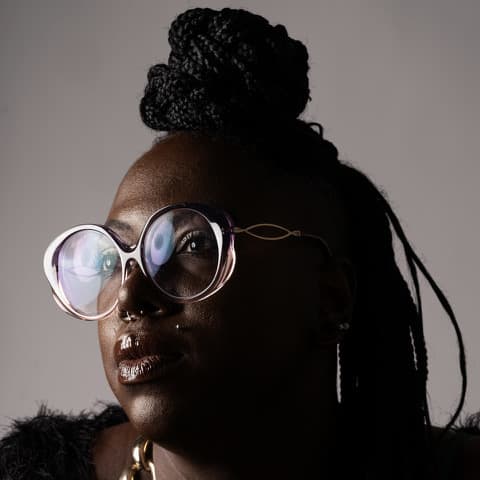Advertisement
How 2016 Became The Year Of The Black Woman Artist

If there has ever been a year when the insurgent fortitude of black music reigned supreme, it was 2016 — a year when art is all we had left to hold onto. America continued to show its true colors when it came to how minorities are treated. If we weren’t being subjected to a barrage of violent images of black bodies suffering at the hands of police, we were answering for our humanity at every possible moment — moments that tested yet ultimately inspired us.
Music proved to be one of 2016’s only forms of salvation. Black music pushed boundaries socially and politically while providing enormous emotional reprieve. Although the male-dominated world of hip-hop usually serves as the crux of such unapologetic outspokenness, female artists — including the world’s most famous one — made songs that addressed and analyzed blackness through both a critical and cultural lens. Albums that were made about us were finally addressed specifically to us. From Beyoncé’s "Lemonade" to Alicia Keys' "Here," music made by black women this year encompassed resistance, complexity, catharsis and pride.
"Lemonade," Beyoncé’s magnum opus, was as sumptuous and alluring and poignant and bracing as we all thought it would be. Everything comes to a head on her sixth studio album. The indefatigable queen of pop showed a wear in her luster — wear correlating to the weight of black womanhood. The full-bodied lyrical bombast of “Formation” and “Freedom” quickly made them towering anthems of the black experience while other songs like “Hold Up” and “Sorry” displayed the intense range of a woman navigating the treacherous nature of intimate relationships and her own self-worth. "Lemonade" is Beyoncé’s valiant call to arms for black women to stop listening to a society that constantly questions their beauty.
In the same vein, Solange’s "A Seat at the Table" possesses the elusive urgency its title implies. Solange’s brilliance is so brazen that it almost comes across as a dare on the record; her lyrics conjure vivid experiences while the songstress dances and glides across tracks that serve as texturally enriched confessionals. "Don’t Touch My Hair," "Cranes In The Sky" and "Borderline" provide the introspection of a woman who is commemorating her autonomy while simultaneously lamenting loneliness. "A Seat at the Table’s" frequent interludes provide both rumination and linearity; they convey crucial insight into Solange’s creative inspirations while pacing a project with larger than life ambition.
Rihanna always infused her music with elements of her Barbadian culture and this year's album, "Anti," was no different, covering vast emotional territory in one fell swoop. "Anti’s" lead single “Work” did it the most unabashedly; her patois serving as a flaring cornerstone in a song drenched in dancehall intonations. "Anti" seemed like the next logical step in a discography by a pop star who knows the importance and appeal of remaining both visually and audibly unpredictable. The record is fitting for Rihanna’s ever-evolving aesthetic yet still establishes her right to fluctuate in between various emotional states. She can flaunt an insatiable, seductive mien on "Sex With Me" then passionately defend her dispassion on "Needed Me." Rihanna's greatest asset has always been her authenticity and ability to showcase the multidimensional nature of black women, a characteristic that was never lost on the audience she most strongly represents.
Outside the realm of pop, Young M.A’s arrival into the hip-hop scene earlier this year was met with instant acclaim. Her execution of bars isn't the only reason for the buzz; Young M.A refuses to adhere to the suggested prototype of a young female emcee. She has been open about being gay — and her hit single "OOOUUU" spelled out her sexual escapades quite candidly. The androgyny of Young M.A's personal style is also a strong contrast to the typical hypersexualized images of women in rap, which speaks to the notion that her career is steeped in staying true to who she is.
That's something Alicia Keys effortlessly embodies in her sixth studio album, "Here." In addition to proudly partaking in the no makeup movement, Keys found another way to illuminate her innate beauty: through spoken word poetry. Although poetry has always been a part of Keys' discography, on "Here" she becomes conceptually bolder while addressing topics that disproportionally affect black populations (like poverty and mass incarceration). Despite the dangerous realities examined in songs like "The Gospel" and "Holy War," the ultimate message of "Here" is one of optimism and hope.
All of these women dramatically altered the soundscape of 2016 by relaying the depth and intricacies of black womanhood. Black women have always used music as a platform to speak against injustice and combat stereotypes, but this year illuminated their voices as one like never before. While stars like Beyoncé and Rihanna will continue to garner attention because of their immense visibility, the challenge now becomes how to facilitate daunting yet meaningful dialogue — especially during such a despondent political climate — among everyone.





